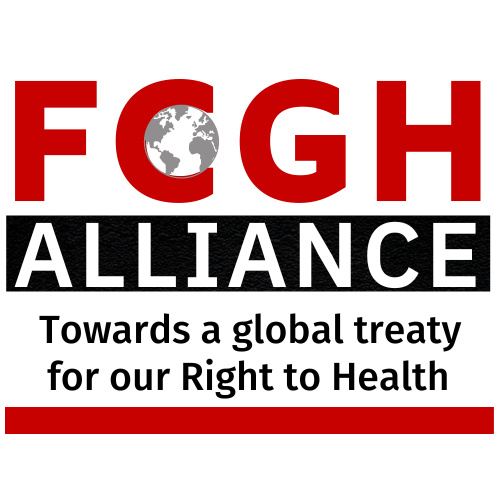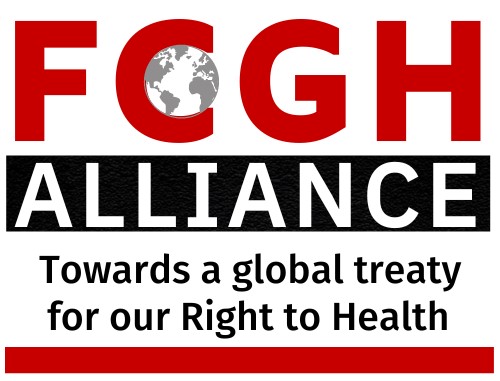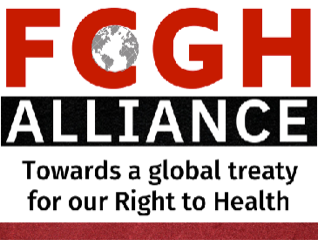The FCGH Alliance has released a new briefing paper on the FCGH, highlighting the urgent need of a FCGH–particularly in the context of the COVID-19 pandemic–with the powerful contribution the FCGH could make to global health security.
Excerpts from the paper:
The Framework Convention on Global Health (FCGH) is a proposed treaty that is based in the right to health and aimed at national and global health equity. It would seek to create a “web of accountability” around the right to health, thus turning the right’s mandates, principles, and frameworks into people’s lived realities, helping restore people’s dignity, so long denied. And in creating accountability to the right to health, the FCGH would be an instrument for health equity.
The FCGH would take a multi-generational perspective to the right to health, recognizing that the right does not permit curtailing the highest attainable standard of health of future generations. Incorporating the principle of sustainable development and standards that could specify the right’s requirements in the context of a multi-generational perspective of the right to health, the FCGH could help ensure health equity across generations.
The FCGH would achieve these goals by offering clear standards – clarifying and as needed building on the current right to health framework – and specific mechanisms, backed by a global regime of accountability. It would encompass three major areas: 1) implementing key human rights principles in health, including equality, participation, accountability, and international cooperation and assistance; 2) resourcing the right to health, and; 3) ensuring accountability to the right to health in all sectors and for all actors, and from local to global levels.
The FCGH would help us “recover better” from the pandemic, as UN Secretary-General António Guterres has urged, working to reverse the pandemic’s setbacks towards the health-related Sustainable Development Goals and the 2030 Agenda’s pledge that “no one will be left behind”. It would also serve as a necessary complement to the International Health Regulations (IHR) (2005) to improve global health security. And longer-term, the FCGH would establish a post-2030 Agenda framework for health and sustainable development that is rooted in human rights and health equity.
In her speech at the launch of the Sustainable Health Equity Movement in June 2020, Michelle Bachelet observed the need to “bring the moral imperative of sustainable health equity, now even more clearly revealed by this COVID-19 pandemic, to an even stronger international legal framework.” An FCGH would be that international legal framework and help the world achieve the “quantum leap linking the right to health” that the UN High Commissioner for Human Rights has called for.




